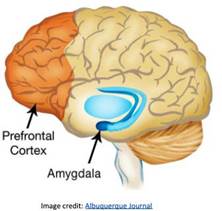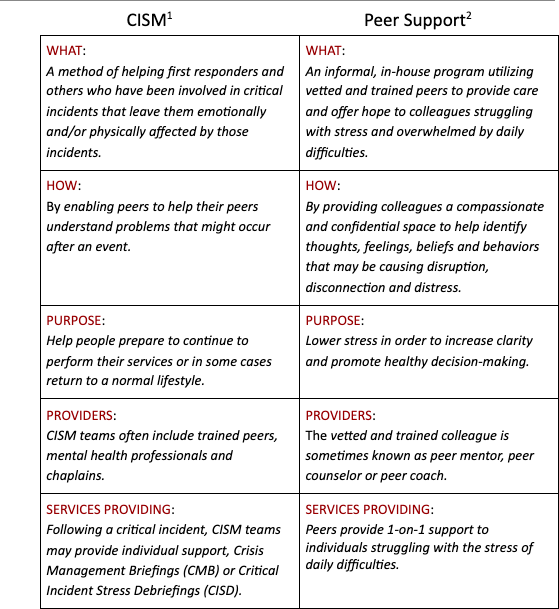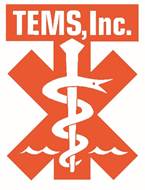Notice of Re-Branding - CISM to PEER Support
TIDEWATER PEER and CRISIS SUPPORT SERVICES (PCSS)
- Note: We have scheduled a meeting to discuss this re-branding in greater detail and if you wish to be part of the new team please contact David Coulling at coulling@PROTECTED with your request for additional information.
It might well be the time to reimagine what the Tidewater Critical Incident Stress Management (CISM) program does and what services it provides and make the program better in the process.
Reimagining a program is hard. Leaders who are overwhelmed with day-to-day surprises, urgent short-term demands, and a gnawing sense of uncertainty often don’t feel able to take on another challenge. But the job is possible — and frequently necessary. Programs exist to have an impact. So the first step in reimagining this program has to be clearly defining what we want that to be. For starters, it is important to consider:
· If we went away today, to whom would it matter and why?
· What difference are we trying to make in our community?
· Who are our core constituents?
· What impact do they need us to have?
Focusing on impact has to go beyond setting big-picture organizational direction. It has to involve candid, data-driven discussions about how a new program will deliver impact in an ever-changing environment. Program evaluations, focus groups, and reports of constituent and leadership experiences all should be taken into consideration.
Reimagining the program gives us a chance to build a diverse and inclusive organization that’s genuinely in touch with its members and reflects the people it serves. As the program shifts, will we be able to maintain a personnel structure and support practices that reflect our values? We should identify the skills or capacities our people must have to be highly effective as we change. Do they correspond with the ones our people now have? If not, where are the gaps? If we can prioritize professional development and continuous learning, we will be better able to adapt as the world around us continues to change.
To effectively reimagine the program, we also need to focus on the larger system in which we operate: our community. It’s made up of several groups that need constant attention; Fire, EMS, Law Enforcement, Healthcare, and the communities we serve. Core constituents. These are the central direct beneficiaries of the program’s efforts. How might they change in your reimagining? What are their needs and interests? Where else are they turning to meet them? Our success depends on knowing the answers to these questions and acting accordingly.
The Tidewater Critical Incident Stress Management Team was founded in July 1986 and has served the Tidewater region well for 37 years! However, much has changed over that timeframe and we have reached a point to reimagine the program and services we offer to our communities. As part of this reimagined program, I believe the focus must shift from CISM first to Peer Support First. Many of our core constituents have established departmental Peer Support Teams and we must be ready to lend support in the way of access to training and augmenting services. CISM still has a role but is no longer the primary focus. We must also look to provide additional support services such as Suicide Intervention and the use of therapy dogs.
Not convinced; take a look at this article:
What’s the difference between CISM & Peer Support?
by Dorie | Oct 21, 2021 | Building a Program, Mailbag, Power of the Peer

The Main Difference is the Brain Difference
Please note, CISM and Peer Support are not in competition with one another. They are, instead, programs designed to complement one another for the safety and wellness of those in need.
So why have two programs? Because they help in two different ways. I think this is best explained with a bit of brain science.

To keep it simple, consider these two key parts of the brain: the front part and the middle part. The front part is called the Prefrontal Cortex. This is the part of our brain where logic, reason, and rationale reside. This part is often called our “adult brain”. The middle part houses the Amygdala and other sections responsible for our fight, flight or freeze response. It is this part of our brain where strong emotions (like fear, greed, anger, worry, etc.) originate.
Science shows that when someone experiences a critical incident (an event that threatens life and /or lifestyle), the front part of their brain goes “offline” and the middle part lights up. This is why during high-stress situations we have trouble concentrating and comprehending. We may feel overwhelmed,
confused, lost or numb. We may choose to shut down, shut out or “herd” with others following the tragedy. Those in crisis are operating from the middle part of their brain. As such, providing immediate, stabilizing support is the right response.
However, crisis response would be inappropriate for a slight to moderate increase in stress since the individual is operating from the front part of their brain. Since the individual can process rationally and reasonably, a compassionate presence reflecting concerns and reframing distortions can help increase one’s awareness and understanding. From this, the individual is then able to examine their options and consider positive action. Trained peers can provide this service.
As you consider the differences between CISM and Peer Support, consider the individual struggling with stress.
* Are they in crisis?
* Did they just experience a powerful, personal and overwhelming event?
* Are they having trouble coping, “bouncing back” or returning to “normal”?
* Does he/she want a “sounding board” – a trusted colleague to vent to and receive feedback from?
* Are they “too close” to the situation/stressor? Are they open to receiving a different, healthier perspective?
If you are in an agency/organization that has a high rate of critical incidents followed by high levels of distress, then invest in a CISM team that provides short-term crisis response. If you are in an agency/organization where employees are dealing with mild to moderate difficulties, then invest in a Peer Support program that provides compassionate coaching. If you are in an agency/organization that has both, then invest in both.
The point is not to invest in a program, but to invest in people. Start by identifying the type of stress (mild, moderate or severe) members in your organization most often endure. Then invest in a program that responds to members most effectively and efficiently.
Here are a few more differences:

![]()
This reimagined program would include a team of providers who are trained in ALL facets of support services being offered. The team would be rebranded as the Tidewater Peer and Crisis Support Team (PCST).
Thank you,
Dave
|
|
Learn your trade, before you learn the tricks of the trade.
- This mailing list is a public mailing list - anyone may join or leave, at any time.
-
This mailing list is announce-only.
ES Groups (ES-Fire-EMS)
Privacy Policy:
This Privacy Policy is for this mailing list, and this mailing list only. Email addresses collected through this mailing list are used explicitly for the distribution of news from the Tidewater EMS Council.
We only collect email addresses through our Closed-Loop Opt-In system. We don't use your email address for any other purpose. We won't be sharing your email address with any other entity.
Unsubscription can be done at any time. All mailing list messages sent from us will include a subscription removal link, which will allow you to remove yourself from this mailing list automatically, and permanently. All consent to use your email address for any other purpose stated at the time of the mailing list subscription will also be revoked upon mailing list removal.

